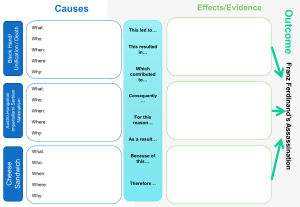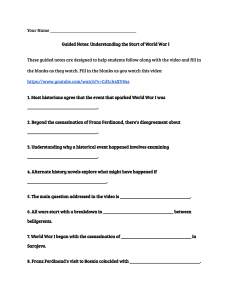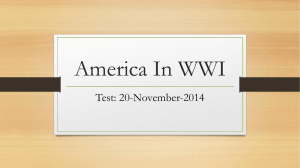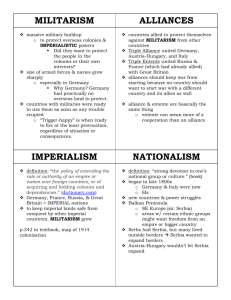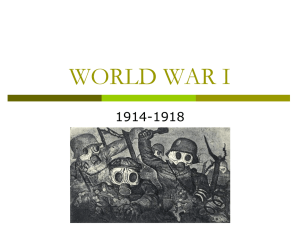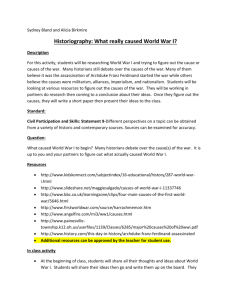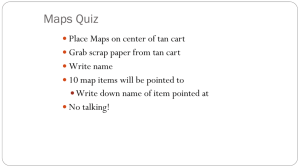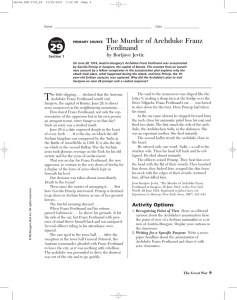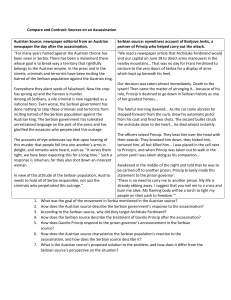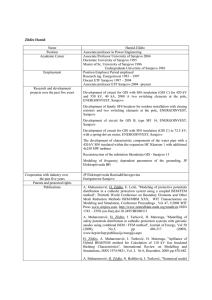World War One: Causes – M.A.N.I.A.
advertisement
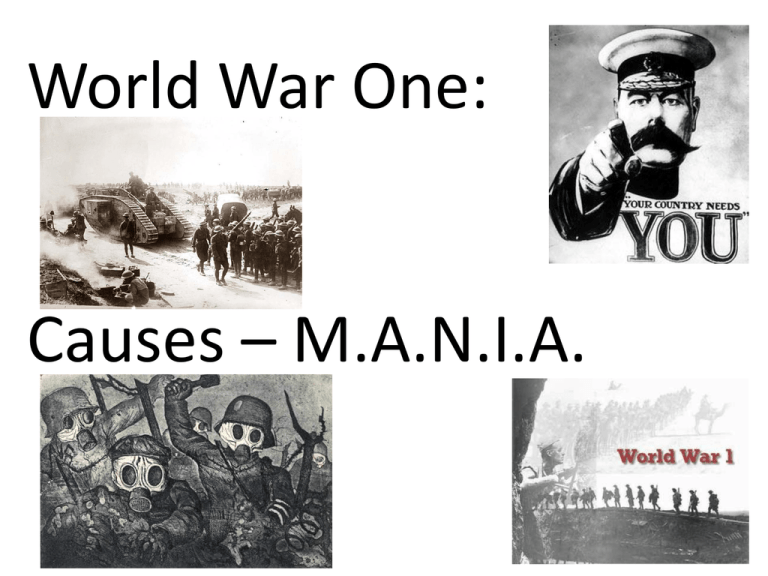
World War One: Causes – M.A.N.I.A. 1. MILITARISM This was a belief by European nations that it was acceptable to solve their disputes by military action. It meant keeping a large scale army that was ready to go to war at any time. 2. ALLIANCE SYSTEMS Triple Entente- Britain, France, Russia & Serbia Triple Alliance- Germany, Austria-Hungary & Italy (which is later replaced by the Ottoman Empire) Rather than discouraging the chance of war, the alliance systems increased the chance of war on a large scale. There could not be a small dispute among competing alliances. The countries of Europe thought that the alliance system would act as a deterrent to war. In fact, it tied the countries together so that when one country went to war the other felt obliged to follow. 3. NATIONALISM European nations felt such pride in their countries that they were willing to fight and die for their homeland. This created tension in Europe because each nation was trying to prove its superiority over other countries. 4. IMPERIALISM This was a desire by European nations to expand their borders and control other nations. Land equaled power at this time. This competition for land had the potential to lead to war. 5. Assassination – “The Trigger”- The Assassination of Franz Ferdinand • In 1914 the city of Sarajevo was part of AustriaHungary •Many Serbian nationalists – people who felt strongly patriotic about their homeland – believed that they shared strong religious, cultural and ethnic ties with the people of Sarajevo. •Serbia was passionate about taking over Sarajevo. • •Gavrillo Princip: a member of a Serbian Nationalist group called the Black Hand. •The Black Hand had secretly planned to assassinate the heir to the Austro-Hungarian empire on his visit to Sarajevo. •The successful assassination of Archduke Franz Ferdinand changed history forever… Summary - These are the remote and immediate (indirect and direct) causes of WWI. M – Militarism A – Alliance Systems N – Nationalism I – Imperialism A - Assassination
